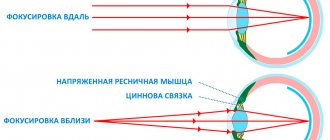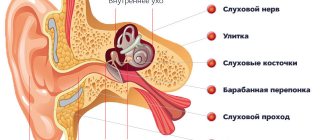Weakness, dizziness, fatigue are symptoms that can appear in a number of pathological conditions and diseases, some of which require immediate medical attention. Some patients tend to consider physical, emotional stress, stress as the cause of their illness and not attach much importance to them. This is a mistake, since increased fatigue can be one of the first symptoms of serious, rare pathologies, for example, Pompe disease.
Pompe disease is a genetic disorder that can occur at any age. It is associated with a hereditary deficiency of the enzyme acid maltase. Due to its deficiency, glycogen accumulates in the muscles, which leads to their damage. The classic symptoms of Pompe disease are progressive muscle weakness, or myopathy. In late-onset Pompe disease (that is, manifesting after the age of 1 year), muscle manifestations may be preceded by increased fatigue, weakness, and muscle pain1.
Along with rare congenital diseases, these symptoms may indicate the development of common conditions and diseases.
Mental and external causes
Dizziness can be associated both with physiology and with various diseases.
Apathy and a feeling of weakness periodically occur in every person. With severe overwork, the body reduces activity and metabolic processes, trying to conserve energy reserves. These are natural defensive reactions that can be easily eliminated without medication.
Doctors identify physical causes of frequent dizziness and drowsiness associated with an unhealthy lifestyle:
- Chronic insomnia. With frequent flights and night shifts, a malfunction of the autonomic nervous system occurs. The problem appears with shallow sleep, the habit of falling asleep with the TV on, and emotional overload. When resting is resumed, symptoms disappear within a few weeks.
- Stressful situations. After suffering a breakdown or the loss of a loved one, mental stress occurs. A large amount of adrenaline is released into the blood, which tones the blood vessels. The nervous system malfunctions and takes a long time to recover, so fatigue persists after a vacation, weekend, or sound sleep.
- Autumn blues. During the cold season, the body requires vitamin D for healthy metabolism and immune support. A lack of ultraviolet radiation leads to the development of a condition reminiscent of depression.
- Meteor dependence. With low blood pressure, women often react to changing weather, complaining of apathy, muscle weakness and pain.
- Physical exercise. When performing certain exercises, a man may experience a sharp rise in blood pressure. The vessels do not have time to pump large volumes of blood to the brain, overwork and hypoxia occur.
The listed reasons are natural, but it is not recommended to ignore the symptoms: the risk of developing somatic diseases increases. This threatens bronchial asthma, diabetes, and neuroses.
Problems with hormonal disorders in women
Premenstrual syndrome can cause dizziness.
Dizziness and drowsiness are symptoms characteristic of premenstrual syndrome. After ovulation, a woman's body produces hormones that can cause swelling. A spasm of small vessels occurs, oxygen supply decreases, a feeling of weakness and irritability appears.
Unpleasant symptoms may occur due to the following characteristics of women's health:
- Heavy menstruation with large blood loss leads to anemia. The problem becomes aggravated after an abortion, against the background of fibroids, after gynecological operations, in teenage girls.
- Hormonal imbalance during menopause leads to decreased vascular tone. The intensity of blood flow decreases, internal organs may experience oxygen starvation. Depression, chronic insomnia, and decreased activity often develop.
You feel dizzy and often want to sleep in the first and last trimester of pregnancy. A woman's hormonal levels change and a large amount of progesterone is produced. It lowers blood pressure, slows down metabolism, and affects the neuroendocrine regulation centers of the brain. After week 12, the hormone level normalizes, the body adapts to the changes, and performance and activity increase.
Drug therapy
Treatment of dizziness in older people should only be done after a full medical examination.
Read also
What vitamins should women take after 60-65 years of age?
The human body is a rather complex system with its own individual characteristics. To ensure... Read the article >
If you know that the cause of dizziness and frequent migraines is ordinary fatigue, it is enough to drink a course of sedatives and take an antispasmodic (analgin, aspirin). Remember, the last drug thins the blood, so if a woman has problems with the gastrointestinal tract, a stomach ulcer, she should not take it, as bleeding may occur.
Dizziness is associated with pathologies of the vestibular apparatus; the brain centers that are responsible for these parts do not work at full capacity. To strengthen nerve impulses, many specialists prescribe a course of Cinnarizine or Scopolamine.
But more complex, psychogenic causes can only be eliminated with drugs from the Betaserc line.
To improve the general condition of the body, experts suggest drinking a vitamin complex.
What to do if dizziness takes you by surprise:
- Fix your gaze on a stationary object.
- Drink a glass of cool water and ventilate the room.
- Eat a handful of raisins or a piece of chocolate to increase your blood glucose levels.
- If you have problems with the cardiovascular system, put Validol under your tongue.
It is important! Taking medications without a doctor's prescription is not recommended at this age.
Signs of nervous exhaustion
Apathy is a sign of nervous exhaustion.
With constant moral and nervous tension, a person’s mental state worsens. It negatively affects overall well-being, leads to decreased immunity, and disruption of the autonomic nervous system. The body cannot adapt to stressful situations and reacts to stimuli with the following symptoms:
- complete apathy with loss of interest in work and hobbies;
- attacks of despondency, anxiety, irritability;
- constant desire to sleep
- refusal to eat;
- dizziness and pain;
- muscle weakness.
In the chronic form of nervous exhaustion, insomnia occurs and the functioning of the endocrine, cardiovascular, and immune systems worsens. Diseases of the digestive system become worse, and infections of the genitourinary system and dysbacteriosis may occur.
What is dizziness?
The room and objects are spinning around, there is no confidence in one’s stability, the body’s balance is lost, the ground disappears from under one’s feet - these are common signs of dizziness
, which can be called a subjective sensation, because neither the room nor the brain is spinning at this time.
Advertising:
The painful condition may be accompanied by:
- nausea and vomiting;
- increased sweating;
- slow heart rate;
- drowsiness;
- chills;
- paleness of the face;
- sometimes - nystagmus.
The disorder can last for a long time, causing the patient anxiety and anxiety. The patient consults a doctor when a similar illness occurs to him not for the first time, often during a sudden rise in the morning. Having determined that the person seeking medical help has normal blood pressure, the specialist tries to clarify what kind of dizziness occurred.
Nature of dizziness
Based on the totality of causes and symptoms, all dizziness can be classified into the following types:
- Peripheral
. It occurs due to an imbalance in the functioning of the autonomic system. During a sudden and short-lived attack, cold sweat appears, balance is disturbed and the pulse is lost. - Central
. The pathological condition arising from brain damage occurs gradually and can be observed over several weeks.
Statistics say that dizzy attacks occur much more often in the fairer sex. Is it because women are more emotional?
The bone of the spine located at its base is called the sacrum. Pain in the sacral spine in women appears with varying severity; it is also called sacrodynia. Read more in the article: “reasons why the sacrum hurts in women.”
General diseases and disorders
The appearance of lethargy and drowsiness along with headaches may indicate a malfunction of the inner ear. With chronic otitis media, hidden inflammation or brain tumors, pressure occurs inside the labyrinth. The brain receives distorted information about the position of the body in space, and coordination is lost. A person experiences frequent attacks of nausea, attention deteriorates, and he becomes distracted due to insomnia.
If the condition worsens and dizziness occurs in adults and children, it is necessary to exclude the following pathologies and diseases:
- Chronic anemia. When hemoglobin levels drop, internal organs and systems do not receive oxygen and nutrition, and metabolism decreases. Tachycardia, fatigue, lack of appetite, and unnatural paleness of the skin may cause concern.
- Complications of osteochondrosis. When blood vessels in the neck are compressed, the normal blood supply to the brain is reduced. This leads to dizziness when standing up, increased blood pressure, and loss of consciousness.
- Tumors. Benign and malignant neoplasms lead to increased intracranial pressure. The blood supply to the affected area is disrupted, migraine attacks occur, and vision and hearing may deteriorate.
- Vascular pathologies. With insufficiency, ischemia, or after a myocardial infarction, a person develops complications. The heart muscle has difficulty pumping blood, which leads to loss of strength and disability.
Fatigue, drowsiness, weakness, dizziness are symptoms characteristic of the initial stage of coronavirus. When the lungs are damaged, the level of oxygen in the blood decreases. This affects performance and requires additional diagnostics and saturation monitoring.
When to see a doctor
Ultrasound of the vessels of the neck is one of the diagnostic methods.
In case of rare attacks no more than once a month, it is necessary to eliminate overwork, adjust the daily routine and nutrition. If you experience frequent dizziness, constant drowsiness and loss of strength, you should visit a therapist or neurologist to find out why the condition has changed. Depending on the symptoms, complaint and congenital characteristics of the patient’s health, the doctor may prescribe:
- blood tests for hemoglobin and sugar levels
- Ultrasound of the vessels of the neck, thyroid gland, adrenal glands;
- X-ray of the spine;
- computed tomography of the head;
- analyzes of basic hormones.
After the results obtained, consultation with an endocrinologist, otolaryngologist or neurologist is required.
Diagnosis of the disorder: what to do first
Initially, you need to contact a neurologist and undergo an examination. The doctor examines the patient and clarifies the complaints. This may require an analysis of the medical history of not only the person himself, but also his family.
To clarify the reasons, a neurologist can perform the Dix Hallpike maneuver. This is a special diagnostic technique to recreate the main symptoms. If the results are positive, the patient will be diagnosed with Peripheral Vertigo. Other common techniques:
- Epley maneuver;
- Brandt-Daroff method;
- Semont maneuver.
The patient may also be sent to see another doctor who specializes in inner ear pathologies and balance disorders. Diagnosis can take time and can be quite difficult. But you must go through it.
However, most tests are quite simple and do not cause uncomfortable measurements. The neurologist measures balance and studies eye movements. If necessary, a CT or MRI may be prescribed, as well as a general blood test, vision and hearing testing.
Methods for treating and preventing drowsiness
Glycine is used for vegetative-vascular dystonia.
If you often feel dizzy and want to sleep, you need to adjust your rest regimen. If you are stressed, you can take a bath before bed and drink a herbal infusion with mint. It is recommended to eat properly and nutritiously, consume more foods enriched with B vitamins, magnesium, potassium, iron: liver, meat, sea fish, nuts, seeds, fruits and vegetables.
For some diseases it is necessary to take medications:
- To eliminate anemia - “Sorbifer Durules”, “Totema”, “Hematogen”.
- For vegetative-vascular dystonia - tincture of Eleutherococcus, Glycine, vitamin complex.
- In case of cerebrovascular accident - Piracetam, Nootropil.
- To reduce asthenic syndrome - Phenibut, Stimol, Cytoflavin.
- For exacerbation of osteochondrosis - “Mydocalm”, “Actovegin”.
To eliminate apathy and drowsiness, you need to play sports, do a warm-up after waking up, and take a contrast shower to strengthen your immune system. Walking in the fresh air and morning jogging help improve your well-being. It is important to eliminate emotional stress, take herbal-based sedatives, and not refuse to consult a psychotherapist in case of nervous exhaustion.










